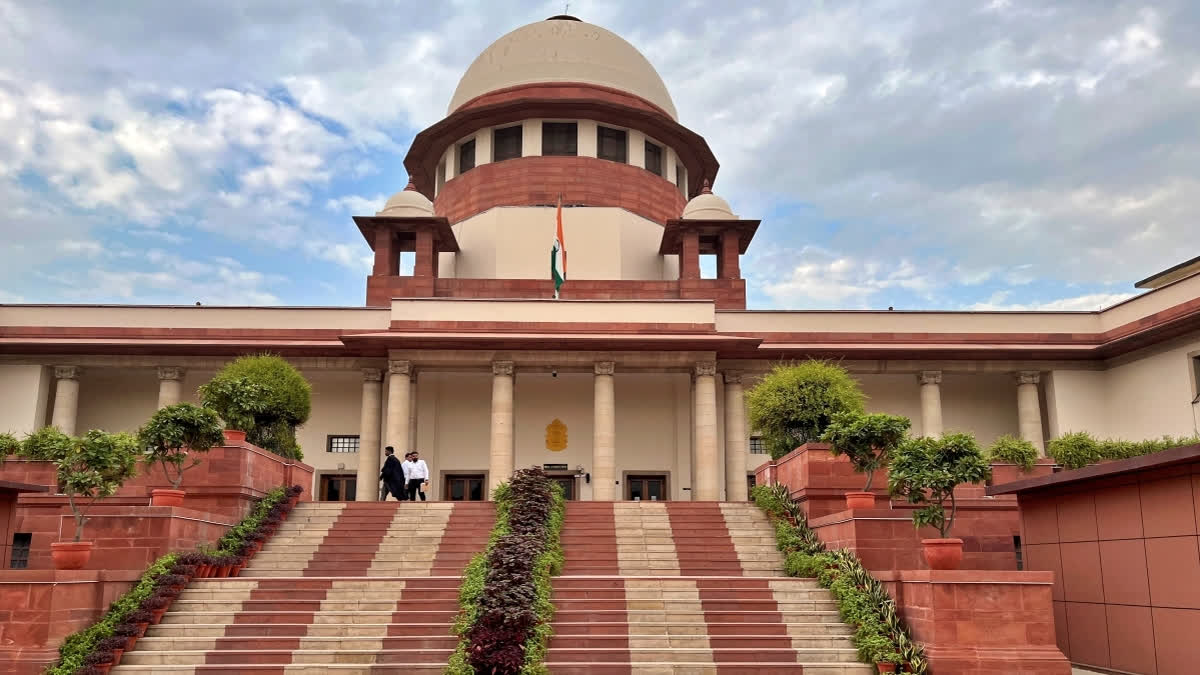New Delhi: The Supreme Court has allowed an appeal by a man who challenged a Delhi High Court order confirming his life sentence awarded by the trial court for murdering his woman friend by setting her ablaze in an open public place.
The apex court found inconsistencies in the prosecution's case which heavily relied on four dying declarations of the deceased: identifying the man and pinning the crime on him.
A bench comprising justices Abhay S. Oka and Sanjay Karol said: “Placing the gauntlet of guilt upon the convict-appellant based on dying declarations when no other material particulars, apart from his name, could be elicited therefrom would be unjustified”. Justice Karol, who authored the judgment on behalf of the bench, said the court found gaps unexplained in the prosecution case, which cast sufficient doubt to leave the case short of the threshold of beyond reasonable doubt.
The bench noted that apart from the alleged dying declarations of the deceased, there is no evidence on record to point to the guilt of the convict-appellant. Justice Karol stressed that it is an established principle that a dying declaration, if it is free of tutoring, prompting, etc. can form the sole basis of conviction. “However, having perused the record minutely, we do not find even a scintilla of evidence by which we may uphold the judgments of the courts below”, he said.
The bench said nothing on record indicates the ownership of a vehicle by the convict-appellant; any disagreement or animosity between the convict-appellant and the deceased, that is of such an extreme nature as to set her on fire; any connection between the convict-appellant and the inflammable substance used to kill the victim such as the record of purchase or statement of any person to show such substance to be in possession of the convict-appellant, etc. “These factors and the fact that the crime in question occurred at an open public access place cast doubt on the prosecution case," it said.
According to the prosecution, Abhishek Sharma and deceased Mandeep Kaur were colleagues. On the intervening night of 20th–21st September 2007, the deceased was found engulfed in flames near the Queen Mary School, Model Town, Delhi. She passed away on October 3, 2007.
It was claimed that a friendship had developed between these two persons, and the convict-appellant would often drive her home after work, which would end at around midnight. Allegedly, due to a quarrel in regards to her affections being not for him but instead for their boss, he took her to an open site near a school and, in the midst of an argument, set her on fire.
Four dying declarations were made by the deceased: the first statement was on the way to the hospital she told police officer Anoop Singh (who reached the spot of the crime) that Sharma set her ablaze; the second statement was given to a doctor, who had examined the deceased and prepared the MLC; third dying declaration was given to another police officer based on which the FIR was registered; and, the fourth was given to her mother.
The trial court found all four dying declarations made by the deceased allegedly implicating Sharma to be consistent, voluntarily made, and in a fit mental condition. Sharma was convicted of murder in April 2009. The high court in May 2010, confirmed his conviction and life sentence for murder. He moved the apex court challenging the high court order.
Allowing Sharma’s appeal, the bench said it was undisputed that the deceased was in a position to speak up until six days prior to her death when she was put on life support. “Yet the non-recording of the deceased’s statement in the presence of the Magistrate or actual ascertainment of her fitness to make statements by doctors remains unexplained”, said Justice Karol, in the judgment delivered on October 18.
The bench noted that a perusal of the dying declaration shows it to have been recorded in the third person, that is to say, that police officer Anoop Singh had reported on the incident of the victim being burned and that she had told him that her friend Abhishek Sharma had done so.
The bench said it is true that a dying declaration is not to be discarded on account of brevity, but it is equally true that it must contain the proximate cause of the deceased's condition and the reason for it. “Here, it states the presence of burn injuries and says that the same was caused by Abhishek, which, arguably, is insufficient. There is no particular identification of the convict-appellant, nor is there a mention of the means through which the injuries were inflicted (petrol)”, said Justice Karol.
The bench noted that it reflects from the record that at the time when the third statement was recorded, the deceased had been administered treatment for her injuries. In the absence of a positive statement by the medical team responsible for her treatment, it cannot be stated, with certainty, that the medicines administered had no effect of impairing the mental fitness of the deceased, it said.
The bench noted that it is evident that the dying declaration does not exist in any written or other verifiable forms. The convict-appellant also assailed the fourth statement's veracity on the ground that it was made by the mother of the deceased, who is an interested witness. “Keeping in view the two factors enumerated above and the lack of independent corroboration, particularly when the person making the statement is the mother of the deceased, the court cannot rule out, to a positive degree, the role played by a sense of loss and possibly even anger, to rely on such statement. Had there been some sort of corroboration with other persons being present, the same could have been relied on”, said the bench.
The apex court said the bail granted to the appellant by order dated October 21, 2013, is confirmed and the bail bonds stand discharged.



